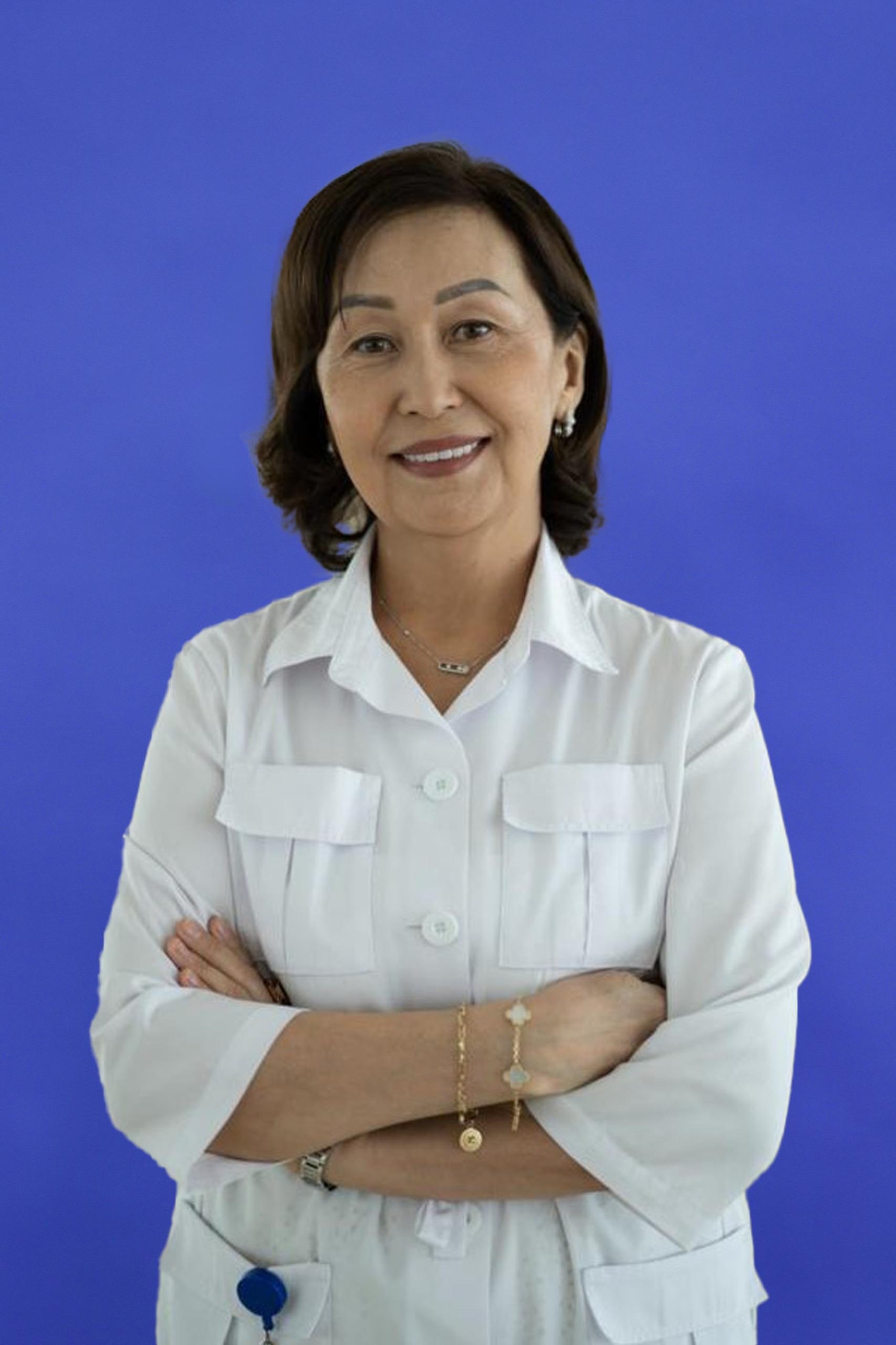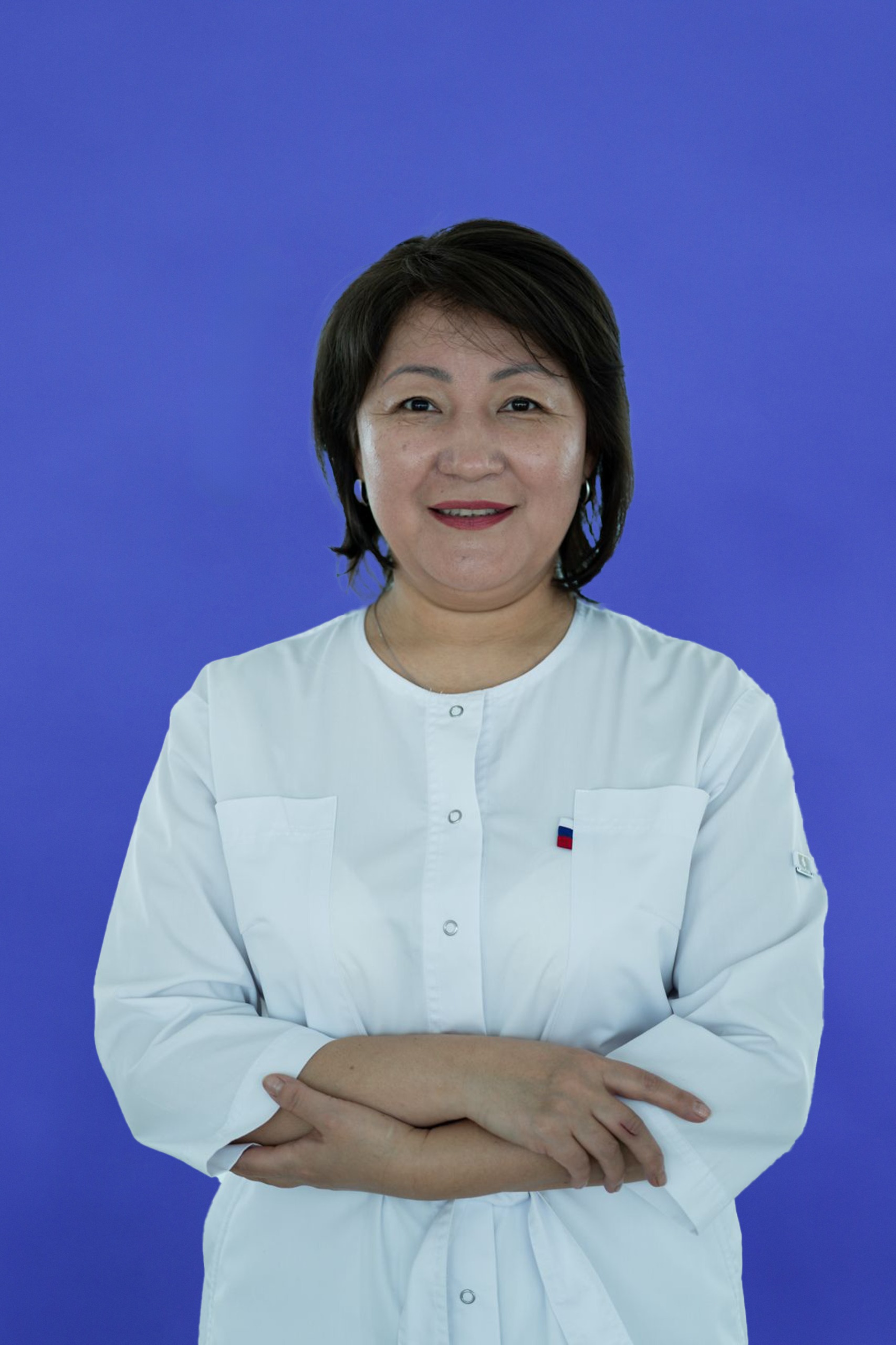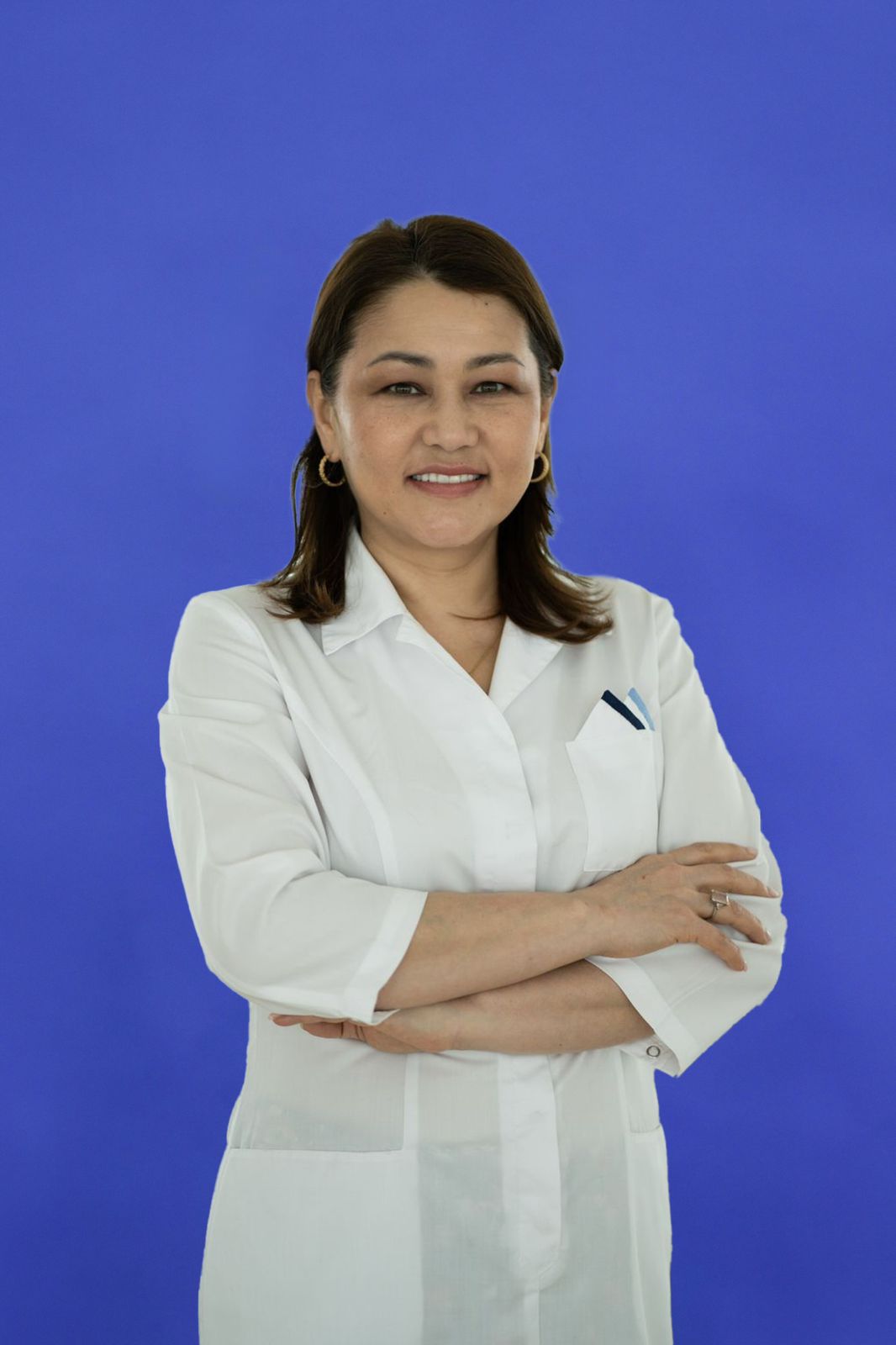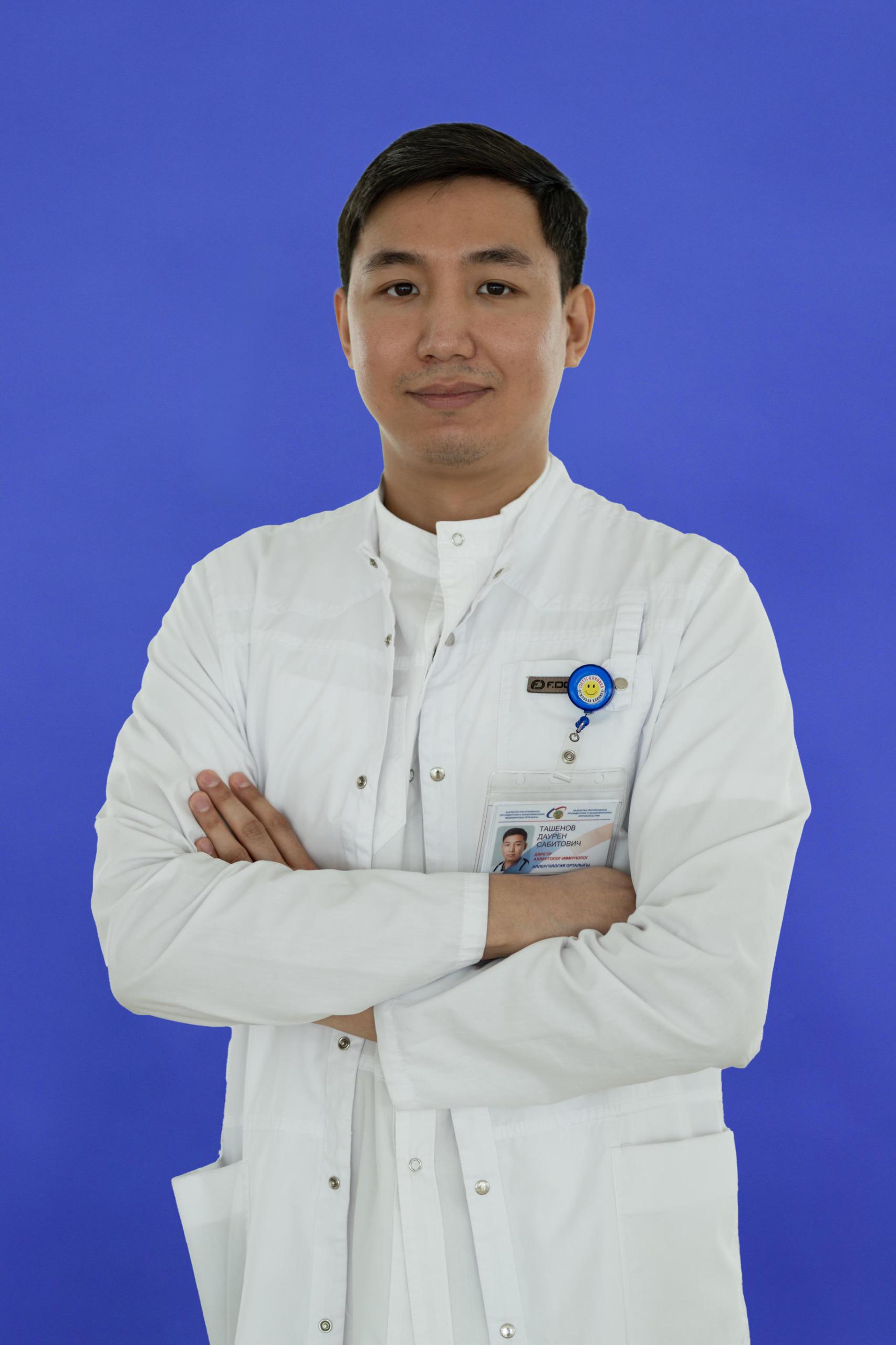About the Center
All clinical and laboratory, including specific allergological and genetic methods of examination of patients with allergic and immune-related diseases (bronchial asthma, severe atopic syndrome, hypereosinophilic syndrome, eosinophilic esophagitis, eosinophilic colitis, mast cell activation syndrome, drug allergy, insect allergy, atopic dermatitis, toxicoderma, all types of urticaria with angioedema, including hereditary and acquired angioedema, primary and secondary immunodeficiencies, etc.) are performed at the Medical Center Hospital of the President’s Affairs Administration of the Republic of Kazakhstan.
As part of the multidisciplinary approach to patient management, the Center interacts with all units of the Hospital. In order to ensure the most effective treatment of patients, doctors of the following specialties are involved, if necessary: dermatologists, rheumatologists, hematologists, cardiologists, ENT doctors, nephrologists, gynecologists, gastroenterologists. The Center’s specialists are guided by national and international clinical protocols and recommendations for the diagnosis and treatment of allergic diseases.
According to indications, medical care is provided in the conditions of day or inpatient department. The patient can receive consultation or hospitalization under the republican budget, under the contract of voluntary medical insurance or on a paid basis.
The Allergology Center has the most modern methods of research for effective diagnosis, treatment and prevention of all types of allergies, including severe forms that are difficult to diagnose. We use complex modern diagnostic allergens for dermal allergy tests and perform their professional interpretation. Qualified staff of the Сenter ensures qualitative and safe performance of skin tests.
Our Center also has therapeutic vaccines for allergen-specific immunotherapy, both domestically produced and preparations from Europe.
Structure of the Center
- Consultative and diagnostic department of allergology and immunology.
- Day hospital of allergology and immunology.
Services of the Center
- Provision of qualified consultative and diagnostic outpatient and inpatient care for adults and children in the profile of “allergology and immunology”.
- Comprehensive examination and treatment of all allergic diseases (severe atopic syndrome, bronchial asthma, allergic rhinitis and conjunctivitis, atopic dermatitis, urticaria, drug and insect allergy, toxicoderma, hypereosinophilic syndrome, etc.).
- Counseling patients with difficult-to-diagnose cases (autoimmune allergies, oncology and hematology under the mask of allergy).
- Preparation of patients for radiologic examination with the introduction of contrast agents, surgical treatment, various invasive medical manipulations.
- Selection of rational drug therapy in the presence of drug allergy in the anamnesis.
- Conducting biological therapy for severe forms of bronchial asthma, atopic dermatitis and chronic spontaneous urticaria.
Diagnostic methods for allergies and allergic diseases
- Allergy tests (skin tests) - drop, application, scarification, intradermal, prick and patch tests
- Provocative tests (drug load) with drugs as indicated
- Extended allergen-specific IgE testing by laboratory method
Contraindications to skin testing
- Exacerbation of a current allergic disease
- Acute infectious process (acute respiratory viral infection, sore throat, etc.)
- Exacerbation of another chronic disease
- Severe condition of the patient
- Prolonged therapy with hormonal drugs (corticosteroids)
- Pregnancy
Before allergy testing, a general clinical examination is performed. If there are contraindications, allergy diagnostics can be performed with the help of laboratory blood tests. In addition, skin testing for allergies is not performed against the background of taking antihistamines and in persons over 60 years of age.
Primary and secondary prevention of allergic diseases
Allergen-specific immunotherapy (ASIT) is the only method of treatment of allergic diseases that affects all links of the allergic process. Synonyms: specific immunotherapy (SIT), allergen-specific hyposensitizing therapy, specific allergen vaccination (SIA). ASIT allows to reduce the severity of clinical manifestations, prevent the development of complications of allergic disease, prevent the expansion of the allergic spectrum. Allergic rhinitis is a risk factor for bronchial asthma and timely ASIT in such patients allows in most cases to prevent the development of bronchial asthma, and in bronchial asthma to achieve multi-year remission, significant reduction of symptom relief. The ASIT method was developed in 1911 as an empirical method. Until now, its unique mechanisms of influence on the immune system have been discovered. Since the advent of ASIT, a vast experience of its clinical application has been accumulated, and allergy vaccines are being improved. Positive clinical result of ASIT is achieved in 80-90% of cases. The method consists in the introduction of causative allergens in increasing doses to create anti-allergic immunity. After a 3-5 year course of ASIT, a long-term remission of the allergic disease can be achieved. According to international recommendations, ASIT is used from the age of 5 years.
Expected therapeutic effects
- Reducing sensitivity to causative allergens
- Prevention of transformation of allergic diseases into more severe forms
- Prolonged remission
Method of administration
- For ASIT, the doctor prescribes subcutaneous injections, inhalation delivery options, tablet forms of allergy vaccines according to the scheme - both before the season of palination (pollination, release of pollen by plants) and throughout the year for the treatment of pollen, household (allergy to house dust), epidermal (allergy to animals), fungal sensitization
- Desensitization with vital drugs (aspirins for cardiovascular patients, chemopreventive drugs for cancer patients, etc.) is carried out.
Different courses of therapy
- Short pre-season therapy
- Full pre-season therapy
- Year-round therapy
How to get a consultation and/or treatment at the Allergology Center in Hospital of the Medical Center of the Administration of the President of the Republic of Kazakhstan?
The patient is sent to the Allergy Center for consultation and treatment by a primary care doctor (general practitioner/ therapist/ pediatrician), allergist-immunologist and other specialists:
- Within the framework of compulsory medical insurance
- On a paid basis
Patients are received from Monday to Friday from 8:00 to 18:00
Consultations on specific diseases:
Urticaria: Monday, Wednesday, Friday from 10:00 to 12:00
Bronchial asthma: Tuesday, Thursday, Friday from 12:00 to 16:00
Hereditary angioedema: Monday and Wednesday from 14:00 to 16:00
Drug hypersensitivity: Tuesday and Wednesday from 8:00 to 10:00
Doctors of the Center
 Galiya Marksovna Tussupbekova
Galiya Marksovna Tussupbekova
Chief of the Center
Candidate of Medical Sciences
The Highest Category
Work experience: 32 years
 Aigul Amangeldiyevna Syzdykova
Aigul Amangeldiyevna Syzdykova
Allergist
The Highest Category
Work experience: 24 years
 Botagoz Malikovna Davletova
Botagoz Malikovna Davletova
Allergist
The Highest Category
Work experience: 22 years
 Tashenov Dauren Sabitovich
Tashenov Dauren Sabitovich
Allergist



